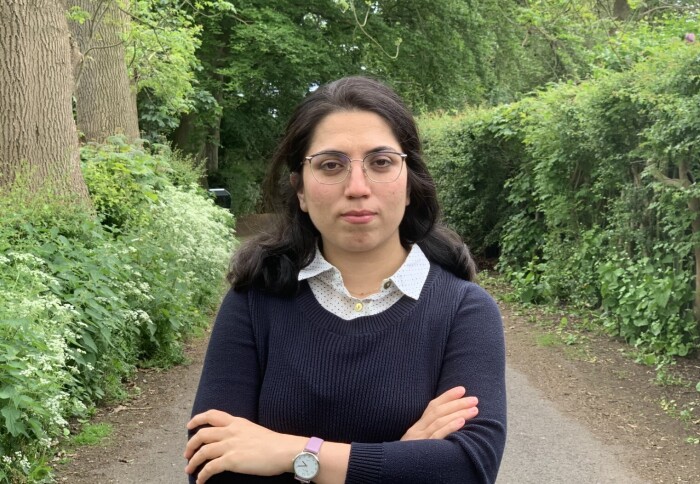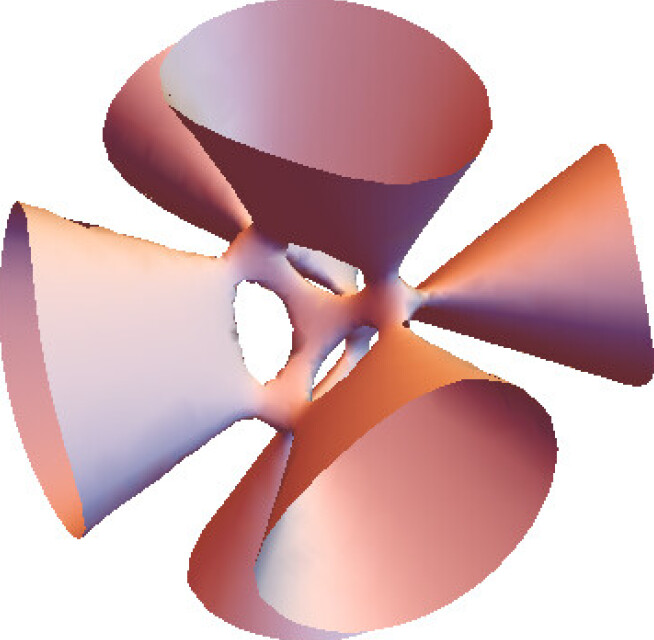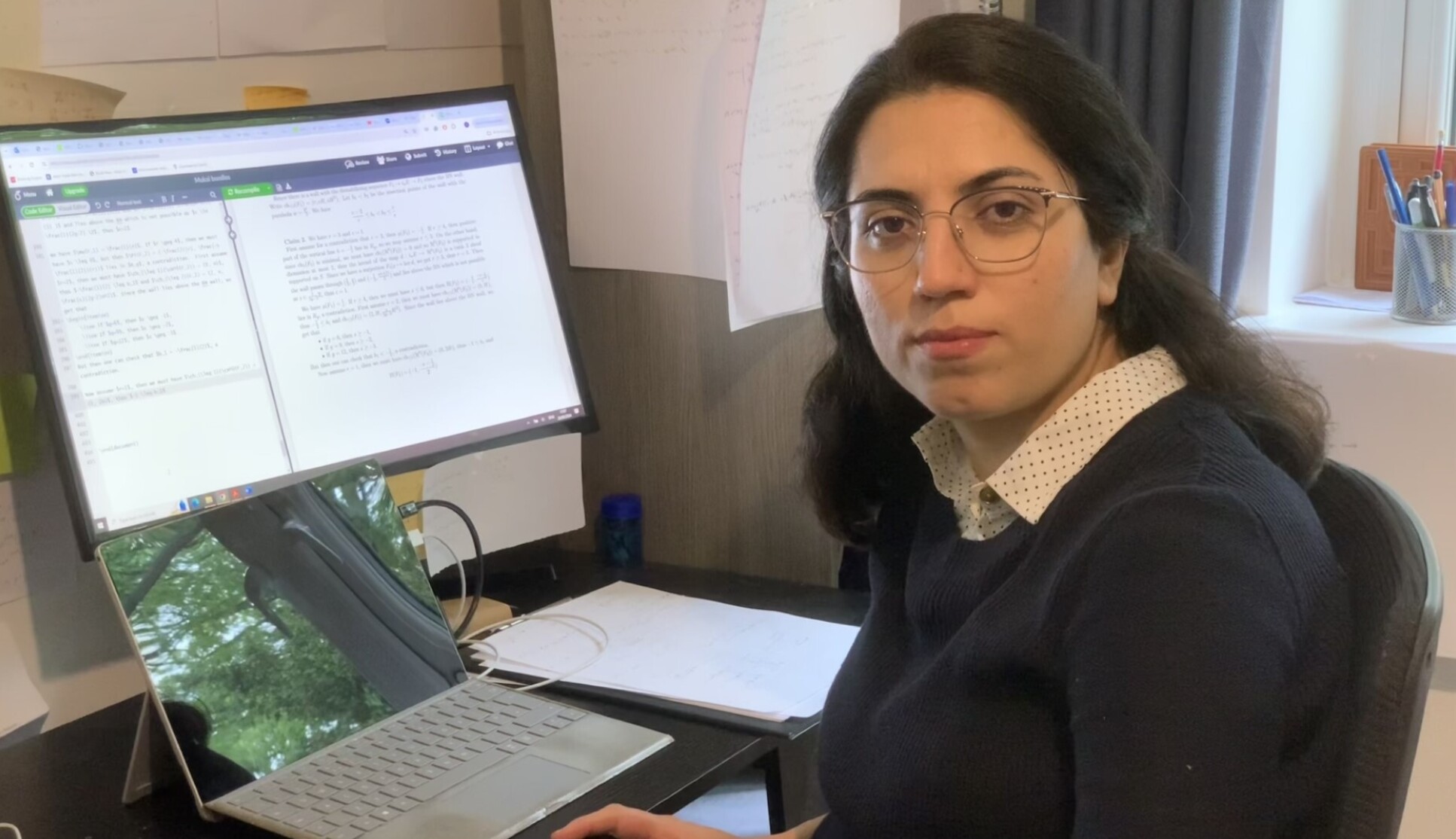Imperial mathematician wins major prizes for advances in algebraic geometry
by Jacklin Kwan

Dr Soheyla Feyzbakhsh from the Department of Mathematics has won three prestigious awards for her work, which borrows ideas from string theory.
The three awards include: the Adams Prize, awarded by the University of Cambridge; the Boris Dubrovin Medal, awarded by the International School of Advanced Studies; and the Whitehead Prize, given by the London Mathematical Society.
Soheyla is an extraordinary and new force in algebraic geometry... Professor Richard Thomas Department of Mathematics
“Soheyla is an extraordinary and new force in algebraic geometry, a mathematician of great power who solves the hardest problems through a combination of talent, insight and sheer force of will,” said Professor Richard Thomas, who works with Dr Feyzbakhsh in the Department of Mathematics.
Using string theory to solve old problems in mathematics
In the world of geometry, mathematicians study surfaces which help bridge abstract theory with the real-world.
Among the surfaces that are interesting to scientists and mathematicians, ‘K3 surfaces’ stand out as particularly fascinating. Named after three mathematicians – Ernst Kummer, Kunihiko Kodaira, and Erich Kähler – and after the mountain K2, K3 surfaces have properties that are rather unique.

K3 surfaces can appear in the physics, as representing the fabric of space and time, or within string theory. They also possess symmetries that are tied to their rich structure, and have been found to have a physical interpretation in string theory, where they help in understanding the possible shapes of the universe itself.
Just like a hologram, K3 surfaces offer a way to study higher-dimensional spaces through the properties they exhibit in the four dimensions they exist in.
In the 1990’s, Japanese mathematician Shigeru Mukai stated if a curve can be found on a K3 surface, then that K3 surface is unique. In other words, by finding a single curve that sits on part of a K3 surface, we can recover the rest of it – a conjecture that remained unproven.
“This conjecture states that we can see the entirety of a K3 surface using a much smaller, low-dimensional curve that sits in it, which can seem ridiculous and counterintuitive,” said Professor Thomas.
“K3 surfaces are very fundamental structures in algebraic geometry and string theory because they contain a lot of information,” said Dr Feyzbakhsh, “So Mukai’s conjecture is important because he believed that you could recover vital data from a simpler curve.”

To prove Mukai’s conjecture, Dr Feyzbakhsh borrowed an idea from physics known as ‘stability’. Objects, such as particles, can be stable. They can persist for a long period of time and return to their original state even after you disturb them slightly, like how a swing eventually comes to a rest after giving it a push.
Dr Feyzbakhsh created a method where you could test the stability of objects on a curve, and test the limits of their stability. By understanding what caused these objects to cross the threshold into becoming unstable, she could recover information about the K3 surface that passed through it, and so recreate the entire K3 surface.
I think this shows that physics and maths have so much to give each other. Dr Soheyla Feyzbakhsh Department of Mathematics
“I think this shows that physics and maths have so much to give each other. A super distant notion in string theory can come in and solve problems in maths like magic,” she said. The opposite has also proved true. Dr Feyzbakhsh has also applied approaches in pure mathematics to problems her colleagues in physics work on.
A road less travelled
Dr Feyzbakhsh did not start her career in pure mathematics. It was only after a PhD student in her university recognised her natural aptitude for mathematics that she began to pursue it seriously.
“Originally I studied electrical engineering and sometimes I ask myself whether I would have been more successful if I continued with that,” Dr Feyzbakhsh said, “With these awards, I can prove to myself that I’m doing the right thing, even if it’s not what my parents expected me to do.”
Article text (excluding photos or graphics) © Imperial College London.
Photos and graphics subject to third party copyright used with permission or © Imperial College London.
Reporter
Jacklin Kwan
Faculty of Natural Sciences